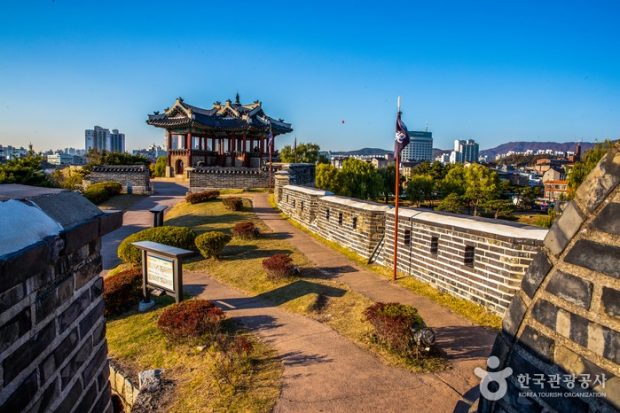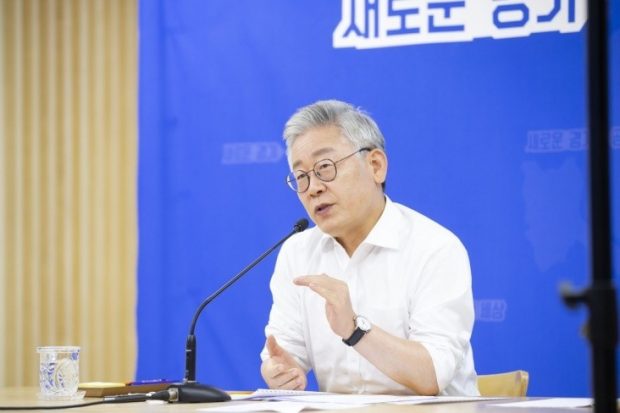
Gyeonggi-do’s Basic Income Model and Suwon City, Korea

By Khatuna Chapichadze
Georgian Technical University San Diego State University Professor
TBILISI: After the coronavirus outbreak in Korea, quite contested, however, very interesting idea of providing the universal basic income (UBI) for citizens, became popularly debated in the country.
In consistence with his A New Gyeonggi Province, A Fair Society Provincial Policy, Korea’s most populous Gyeonggi Province Governor Lee Jae-myung nationally proposed a basic income of 500,000 won ($430) a year per person for 2020.
The plan is to gradually expand the figure over years, and in around 15 to 20 years, reach 500,000 won a month, which currently is roughly the equivalent of the country’s social welfare payments. Bolstering taxes on land, considered a public asset, carbon dioxide emissions from burning fossil fuels, and digital services, developed using data produced, are considered as ways to fulfill the plan.
On the regional level, Gyeonggi Province has already put into action a number of its own basic income programs, in particular, Youth Basic Income, and Disaster Relief Basic Income projects.
According to the official website of the Gyeonggi Province, Gyeonggi-do’s Youth Basic Income project, first implemented in 2019, marked an important step forward in Korea’s realization of the basic income concept.
The program, targeting all 24-year-old residents of the province, the youths, who in general in the country have typically just finished university and are preparing to enter the highly competitive job market, offers four payments over the span of one year, in the form of the Gyeonggi regional currency.
This strategy of using the local currency, aims at aiding the local businesses, like shops and other small entrepreneurs that have registered with the local currency program. In 2020, amidst the COVID-19 crisis, the second year of launching the Gyeonggi Youth Basic income experiment, the program is being continuously carried out.
To counter the economic fallout of the global pandemic, Gyeonggi Province Governor has initiated a disaster relief support program, through which each Gyeonggi resident, regardless of age or income level, receives KRW 100,000, in the form of the Gyeonggi local currency. This payment helps families with their purchases of necessary goods, while also benefiting local small businesses that have been hit hard by the current economic downturn. Based on the same source of information mentioned above, although it’s too soon to evaluate results, anecdotal evidence points to the positive impacts for both provincial residents and businesses.
Taking into account the increasing wealth gaps, and rising job insecurities due to, among other reasons, the rapid technological development not only in Korea, but globally as well, basic income programs seem a considerable solution if they can be of course, affordable to be covered by governments, and for this, supported by the sufficient tax-based revenues, first of all.

In a case of Korea, Gyeonggi Province Governor Lee Jae-myung foresees basic income to become a major topic for the country’s next presidential elections, scheduled for 2022. This obviously emphasizes the trend that, being main UBI advocate in Korea, Gyeonggi-do and its leadership tend not only continue implementing different basic income programs locally, but they also plan pushing for larger national initiatives in this regards.
The provincial capital of Gyeonggi-do is Suwon, being administered currently by Mayor Yeom Tae-Young. Korea’s first planned city has a population of more than 2 million people and is home to both tradition and cutting-edge industries. Suwon, regarded as a Satellite City of Seoul and Other Metropolitan cities, is less than 1 hour away from the Incheon International Airport. Famous worldwide, global company Samsung Electronics is located in the city.
Suwon has an important strategic function, being a transportation hub, and linking KTX, subway, intercity bus and airport limousine.
Among the remarkable city sightseeing places are the UNESCO World Heritage “Suwon Hwaseong Fortress” and a historical feature of Joseon Dynasty, registered also as the UNESCO World Cultural Heritage site in 1997. Suwon hosted matches in the 2002 FIFA World Cup.


